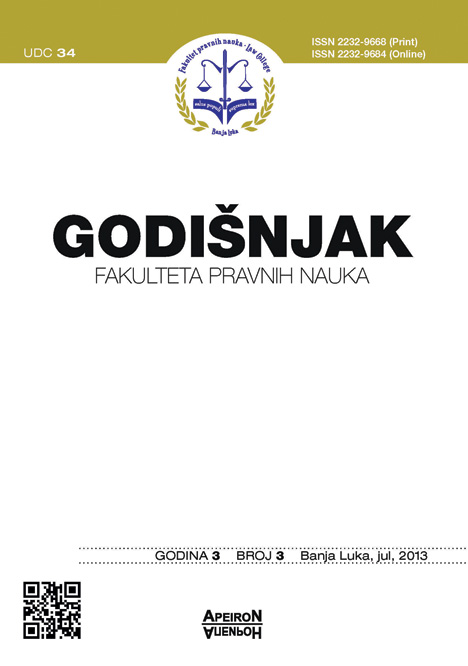Legal Obstacles in Proving of Criminal Acts of Corruption / Pravne teškoće u dokazivanju krivičnih djela korupcije
DOI:
https://doi.org/10.7251/GFP1303126BAbstract
One of the characteristic of our time are frequent changes in social relations, burdened with many tensions and conflicts. For that reason the law has irreplaceable role in regulation of this relations in a direction that is desirable for society. Problem we are facing with in everyday social relations is increase of criminality which doesn’t stop itself inside of national frontiers but becomes more and more international. Increase of corruption is especially disquieting. In this paper its author is dealing with legal obstacles in practice of implementation of corresponding legal instruments devised for struggle against corruption. These problems are dealt with in the paper not only from the Criminal procedure law aspect but from the Constitutional law aspect as well. Some decisions of the courts in Bosnia and Herzegovina are analised with regard to this problem, i.e. with regard to situations of existence of the evidences that a criminal act is perpetrated but problem is that such evidences are not provided by domestic institutions but by institutions of foreign state. Judicial practice in Bosnia and Herzegovina doesn’t have unanimous opinion on possibility to use such evidences in criminal procedure before the domestic courts. Having designated on different opinions in domestic judicial practice, and in practice of European court on human rights as well, in the final part of the work its author has given his opinion how (and why) this problem should be resolved in criminal procedure.Downloads
Published
2013-07-15
Issue
Section
Чланци
